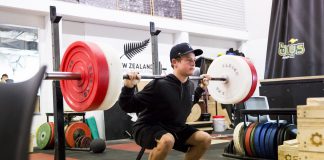A generation ago, parents believed that development occurred naturally. As long as the basic needs of love, play and security were met, they had confidence their kids would be just fine.
Nowadays, many parents no longer engage with this version of parenting. Instead, they have a deep desire to orchestrate their child’s development. They believe that ‘cultivation’ of the environments their kids spend time in is a core parenting task.
Research suggests that this change in the way parents engage with organised sport is fuelled by both their childhood experience and the parenting ideas they now encounter and negotiate as adults.
The 60s and 70s saw a changing face of sport. Government investment grew and participation became an expected and normalised part of everyday life, which facilitated positive sporting experiences and led children to develop a ‘strong taste’ for physical pursuits. Because it’s common for one or both parents in the modern family to have derived a deep love for sport, they have the same wish for their kids.
A parent’s desire to be involved with their child’s sport may also be the result of parental absence they experienced themselves. A generation ago, sport was seen as a child’s activity which a parent may support but not necessarily engage actively in.
Today, a parent’s desire for emotional closeness with their child in a more disconnected world has changed that. Any opportunity to foster and maintain a close relationship with their child during a life phase associated with increased independence and detachment is jumped at by a parent.
Parents today also face raising children in a cultural context of growing ‘responsibility’. Life has been positioned as a competitive arena for which sport can and should prepare their children. And as a result, parents are making a strategic effort to ensure optimal development.
For instance, the valuable life skills and attributes a quality sports environment can teach are in high demand. Thus, parent-driven cultivation of the sporting environment now takes place not only to accrue skills for competitive advantage and future returns, but to develop a specific mindset.
Regardless of where the motivation comes from, the potential for enjoyable and meaningful experiences sport can provide has given rise to the more-involved parent. Therefore, an important question every sports parent should ask themselves is this:
How does my deep involvement affect my child’s experience?





































